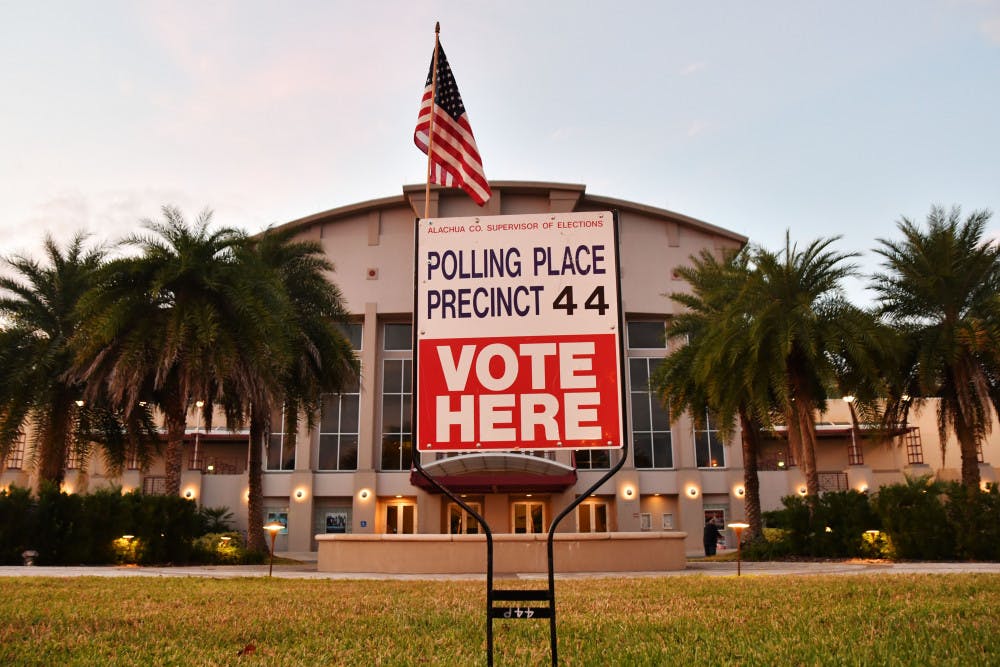Nakishia Sullivan has been labeled as an Alachua County felon since she was convicted for aggravated battery and assault charges in 2010.
She served about four years and was released April 4, 2014. But she still can’t vote or serve on a jury, even though she now holds a full-time job caring for the elderly.
She’s ready to have a voice again.
“After you go to prison, you already paid your debts to society,” said Sullivan, 33. “It shouldn’t be held against us no more.”
Local lawyers and UF Levin College of Law students have been donating their time to help felons like Sullivan regain their rights. Both the Alachua County Library District and the Eighth Judicial Circuit Bar Association have hosted the “Law in the Library: Restoration of Civil Rights Workshops” over the Fall and Spring.
The next one is 4:30 to 6 p.m. Thursday at the Cone Park Branch, 2801 E. University Ave.
The program has about 45 volunteers from the law school and Josiah T. Walls Bar Association, who sit down one-on-one with felons to discuss how to restore their civil rights in Florida, said Brianna Williams, an administrative assistant director for the project.
“We tell them how to go beyond just what is required to beef up their application and hopefully show that they have turned their lives around,” the 23-year-old second-year UF law student said.
About three to six participants attend each workshop, Williams said. The current process in Florida requires a felon to complete their prison sentence and have no other pending charges, Williams said.
The felon then must wait five or seven years, depending on their charge, to petition for clemency, which allows for the restoration of civil rights, to the state’s Office of Executive Clemency, Williams said.
They must also pay restitution, payment by an offender to the victim, before they can apply to have their rights restored, Williams said. If clemency is granted, they will regain the right to vote, can sit on a jury and run for elected public office.
This November, Floridians will vote to decide if that process should be shortened, Williams said. The amendment, if passed, will grant the right to vote back to felons after they complete their sentence, excluding those convicted of murder or sexual offenses.
Meshon T. Rawls, UF law professor and organizer of the Law in the Library series, said the program helps participants move forward in their lives to become “full-fledged citizens.”
“It’s a dignity issue,” Rawls said. “Once they have done what the judges have asked them to do, they want to be able to have that chance.”
HOW TO VOTE ON FLORIDA FELON VOTING RIGHTS:
- The Voting Restoration Amendment (Amendment Four on the ballot) aims to restore the voting rights of Floridians with felony convictions after they complete all terms of their sentence including parole or probation.
- The amendment would not apply to those convicted of murder or sexual offenses, who would continue to be permanently barred from voting unless the Governor and Cabinet vote to restore their voting rights on a case by case basis.
- Sixty percent of Florida voters would need to vote yes on the amendment to make it law.
- Voter registration date for general election: Oct. 9. General election date: Nov. 6.






